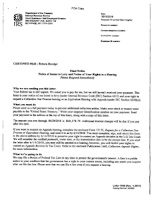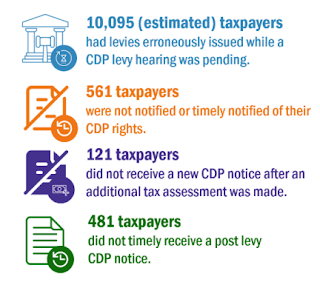According to Law360, Property seized by the Internal Revenue Service to satisfy tax debts could sell for more money under proposed regulations released October 13, 2023 that the agency said would create a more competitive bidding process, remove barriers to online sales and for the first time allow buyers to pay by credit card.
These proposed regulations, mark the first major changes to its process for selling seized property since 1954, would allow the agency to solicit bids online from people in the county in which the property was seized. The agency is currently allowed to sell properties online only after obtaining a special order from the U.S. Treasury secretary, the notice of proposed rulemaking said.
The proposed regulations also would allow the IRS to pursue special permission to sell properties online to buyers outside the county in unusual situations and when doing so would be more efficient or more likely to attract more competitive bids. Those unusual situations include sales of property in places where internet access is limited or when property has been put into storage elsewhere, according to the proposed regulations.
- The bidding itself would become more competitive under the proposal by ending the current regulatory requirement that the agency draw lots to settle a bidding war when there is a tie.
- Under the proposed regulations, bidding would remain open until the highest bid is submitted.
- Bidders also would be allowed to submit and withdraw bids electronically, rather than only in writing through sealed envelopes or by public auction, according to the proposed regulations.
- Winning bidders would be allowed to pay by credit card or other electronic means for the first time, rather than only by check or money order.
Bidder To Put Down 20% Of The Bid Amount,
The agency would also be able to more freely group properties for sale to try to attract the highest bids.
Modernizing to expand online sales allows the IRS to attract a wider range of potential buyers, and therefore higher bids, while lowering its cost to make the sales, the agency said in the proposed regulations. Ultimately, taxpayers would benefit, the IRS said, because the agency uses the sale proceeds first to pay its own sales costs, leaving whatever's left to pay down a taxpayer's liability.
Flexibility To Sell Seized Property, It Would Prohibit Revenue Agents Who Participated In Seizing A Property From Selling It.
That restriction incorporates advice from members of Congress, who said the practice was unfair under the Internal Revenue Service Restructuring and Reform Act of 1998.
The proposal starts the clock on the public comment period, with 60 days for the public to submit comments and request a public hearing on the proposed regulations, the notice said.
Have An IRS Tax Problem?
www.TaxAid.com or www.OVDPLaw.com
or Toll Free at 888 8TAXAID (888-882-9243)
Read more at: Tax Times blog


.jpg)






